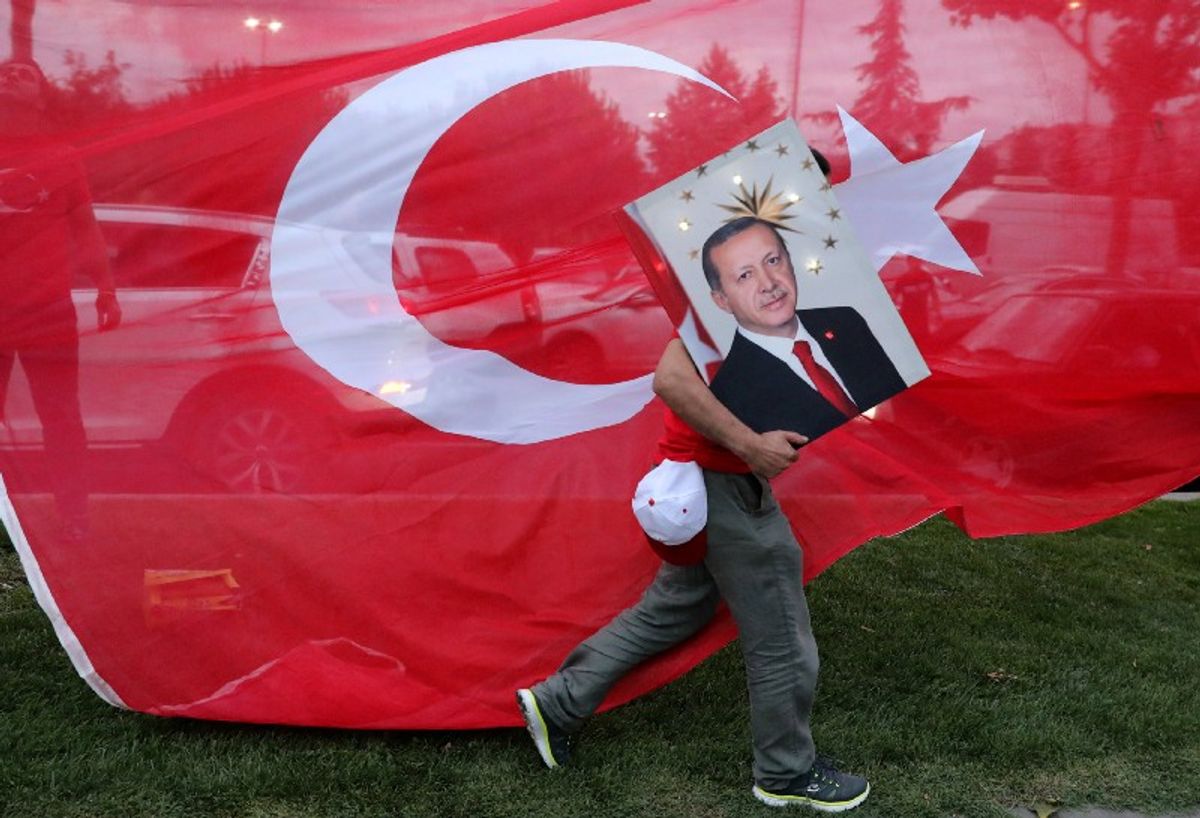No one can dispute that Turkish politics is increasingly a one-man show. After winning a first-round presidential ballot outright on Sunday, Recep Tayyip Erdogan — who has already purged thousands of officials, warped the courts, and muzzled the media — jumped through what looked like the last hoop in his multi-year push to bring the country’s political system more firmly under his control. He will begin a fresh five-year term with vastly-expanded new presidential powers.
But Mr. Erdogan isn’t yet the modern Sultan that he seemingly aspires (and his critics sometimes make him out) to be. His election victory — in which he managed to secure just 52.4 percent despite almost complete control over domestic media — was by no means resounding. Turkish society remains deeply divided, and despite growing constraints, real political parties that oppose him continue to thrive, at least for now.
What’s more, his AKP party suffered a decline in support and failed to win outright control over parliament, meaning it will rely on a partner for a legislative majority. That partner is the ultranationalist MHP party, which joined forces with the AKP in the election. Erdogan will need MHP votes to pass legislation or to stave off parliamentary challenges to his decrees. Erdogan will also need the MHP’s help to win some difficult municipal elections next year.
The MHP could prove to be a thorny partner: its demands for harsher policy towards the Kurds will inflame tensions at home and risk fresh tensions with NATO allies who support Kurdish enclaves across the border. The MHP also wants to loosen the budgetary purse strings, precisely when foreign creditors are already punishing Turkey for pumping too much money into the economy.
To be clear, Erdogan has done much to bend the Turkish political system to his will over the past fifteen years. The country is already one of the world’s biggest democratic “backsliders.” And yet there are still parts of that system that remain resistant to his brand of authoritarianism.
Whether Erdogan will use his new powers to break those last ramparts of resistance — and whether that effort decisively levels his opponents or ends up destabilizing his country more broadly — will be the critical story as Turkey lurches into a new and deeply uncertain phase of its history.



















